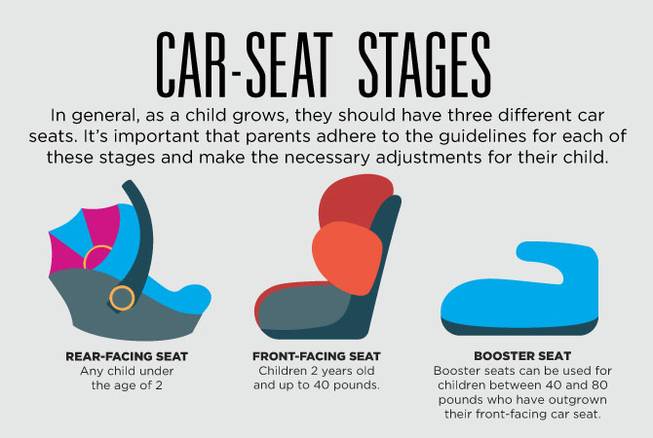Why Did My Car Insurance Go Up Progressive? Top Factors Explained
Your car insurance may have increased with Progressive due to factors like changes in your driving record, location, or policy coverage. Other reasons might include higher claim rates in your area or adjustments in Progressive’s pricing model.
Car insurance rates can fluctuate for various reasons, leaving many drivers puzzled. Understanding why your car insurance premium rises is crucial for budgeting and making informed decisions. Factors such as your driving history, the number of claims filed, and even changes in state regulations can lead to increased costs.
Additionally, insurance providers like Progressive regularly assess risk levels based on market trends and customer data. Staying informed about these changes can help you manage expenses and ensure you have the right coverage for your needs. Knowing the reasons behind the rate hike empowers you to explore potential adjustments or discounts.
Introduction To Rising Premiums
Many drivers are worried about the increase in car insurance premiums. Progressive, like other insurers, adjusts rates based on various factors. Claims history, credit scores, and driving records play a big role. If you’ve made claims recently, your rate may rise. Traffic violations or accidents can also lead to higher costs.
Insurance companies analyze risk to set your premium. A higher risk means higher rates. Economic changes can impact premiums as well. If more people file claims, rates may go up for everyone. Inflation also affects the cost of repairs and replacements.
Understanding these factors helps policyholders feel more informed. It’s essential to review your policy regularly. Knowing why rates change can ease concerns about rising premiums.
Driving History And Its Impact
Your driving history plays a big role in your car insurance rates. Accidents and claims can increase your premium. Insurers see these events as risks. Each claim can raise your costs significantly. A major accident can lead to a larger increase.
Moving violations also affect your insurance. Speeding tickets or DUIs signal risky behavior. These can result in penalties like higher rates. Each violation can stay on your record for years. This can lead to long-term financial impacts.
Credit Score Influence
Your credit score plays a big role in your insurance premium. Insurance companies use a special score called the insurance score. This score combines your credit history and other factors. A low score can lead to higher rates.
Changes in your credit can affect your rates. For example, paying bills late may hurt your score. On the other hand, paying off debt can improve it. Regularly checking your credit report is important.
| Credit Change | Effect on Insurance Score |
|---|---|
| Late Payments | Negative Impact |
| High Credit Utilization | Negative Impact |
| Debt Paid Off | Positive Impact |
| New Credit Inquiries | Neutral to Negative Impact |
Location-based Factors
Your zip code can greatly affect your car insurance rates. Insurance companies assess local weather conditions and crime rates. Areas with high crime may lead to increased premiums. If your neighborhood has more accidents, rates may also rise. Progressive reassesses zip codes regularly to reflect these changes.
Weather impacts claims for damages. Regions with severe storms may see higher costs. In contrast, safer areas might enjoy lower rates. Always check how your location influences your insurance costs. Understanding these factors can help you make informed decisions.
Changes In State Regulations
Changes in state regulations can impact your car insurance rates. Insurance laws amendments often adjust how companies calculate premiums. Some states may raise rates based on recent legislative changes. These changes can affect coverage options and limits.
State-specific rate adjustments vary widely. Each state has its own rules for insurance pricing. Factors include the local economy, accident statistics, and claims history. Understanding these factors helps explain why rates may increase.
| Factor | Impact on Rates |
|---|---|
| Local Economy | Higher rates in economically struggling areas. |
| Accident Statistics | More accidents lead to increased premiums. |
| Claims History | Frequent claims can raise your rates. |
Vehicle-related Considerations
The age and model of your car can affect your insurance rates. Newer cars often cost more to insure. They may have higher repair costs or theft rates. Safety features can help lower premiums. Cars with advanced safety systems often qualify for discounts.
Repairs play a crucial role in determining costs. If a vehicle requires frequent repairs, rates may increase. Older models might not have the latest safety technology. This can lead to higher insurance costs.
Policy Adjustments
Changes in coverage levels can cause your car insurance to rise. Higher coverage amounts mean more protection. This can lead to increased premiums.
Adjusting your deductibles also impacts your costs. A lower deductible usually results in higher monthly payments. Conversely, a higher deductible can reduce your premium.
Limits on your policy can also affect the price. Increasing limits means more coverage, which can raise costs. Understanding these factors helps in managing your insurance expenses.
External Economic Factors
Many people notice their car insurance rates rise. This can happen due to external economic factors. Inflation affects the cost of goods and services. As prices increase, insurance companies adjust rates to cover expenses.
The cost of medical care also plays a big role. When medical expenses go up, insurance claims rise too. This can lead to higher premiums for drivers. Understanding these factors helps explain rising insurance costs.
| Factor | Impact on Insurance Rates |
|---|---|
| Inflation | Increases overall costs |
| Medical Care Costs | Higher claims lead to increased premiums |
Insurance Company’s Operational Costs
Car insurance rates can rise due to administrative expenses. These costs include salaries, office supplies, and other daily operations. If an insurance company has high overhead, it may raise premiums to cover these expenses.
Investment losses also play a role in higher insurance rates. Insurance companies invest premiums to earn money. If these investments perform poorly, companies may increase rates to recover losses. This means that both administrative costs and investment performance directly affect what you pay for car insurance.
Lifestyle Changes
Changes in your marital status can affect your car insurance rates. Getting married often leads to lower premiums. Insurers view married drivers as more responsible. On the other hand, getting divorced may increase your rates.
A change in commute or how you use your car can also impact costs. Driving fewer miles usually lowers premiums. If you switch to a longer commute, your rates may go up. The more you drive, the higher the risk of accidents.
| Change | Effect on Insurance |
|---|---|
| Married | Lower Premiums |
| Divorced | Higher Premiums |
| Shorter Commute | Lower Premiums |
| Longer Commute | Higher Premiums |
Navigating Premium Increases
Premium increases can happen for many reasons. Shopping for new quotes is a smart move. Compare different insurance providers to find better rates. Many drivers discover lower premiums this way.
Look for discounts and savings opportunities. Many companies offer discounts for safe driving, bundling policies, and good credit. Check if you qualify for any special programs. Loyalty discounts may also apply if you stay with one insurer.
| Discount Type | Description |
|---|---|
| Safe Driver Discount | Reward for having a clean driving record. |
| Multi-Policy Discount | Save by bundling home and auto insurance. |
| Good Student Discount | Available for students with high grades. |
Conclusion: Proactive Measures
Regularly reviewing your car insurance policy is very important. It helps identify any changes in your coverage or premiums. Look for discounts that may apply to you. Many companies offer savings for safe driving, bundling policies, or low mileage.
Maintaining a clean driving record is crucial for lower premiums. Avoid accidents, speeding tickets, and other violations. A good driving history shows insurers you are a responsible driver. This can lead to better rates and fewer increases in your insurance costs.
Consider taking a defensive driving course. Completing such a course can sometimes provide additional discounts. Staying informed about your policy can help you save money.
Frequently Asked Questions
Why Did My Car Insurance Increase With Progressive?
Your car insurance may increase due to various factors. These include changes in your driving record, claims history, or even adjustments in underwriting criteria. Additionally, economic factors like inflation can also play a role. It’s essential to review your policy details for specific reasons.
What Factors Affect Car Insurance Rates?
Several factors influence car insurance rates. These include your driving history, vehicle type, and location. Other considerations are your credit score and the number of claims filed. Understanding these factors can help you manage your insurance costs effectively.
Can I Negotiate My Insurance Premium With Progressive?
Yes, you can negotiate your insurance premium with Progressive. Start by reviewing your current coverage and identifying areas for savings. You can also ask about discounts for safe driving or bundling policies. Engaging with your insurance agent can lead to potential adjustments in your premium.
How Often Does Progressive Raise Car Insurance Rates?
Progressive typically reviews rates annually but can adjust them more frequently. Rate increases may occur due to claims, changes in risk assessment, or state regulations. It’s advisable to monitor your policy regularly to stay informed about any changes in your rates.
Conclusion
Car insurance rates can increase for various reasons. Understanding these factors helps you make informed decisions. Regularly review your policy and shop around for better rates. Staying informed can save you money and ensure you have the coverage you need.
Make proactive choices to keep your insurance costs manageable.







